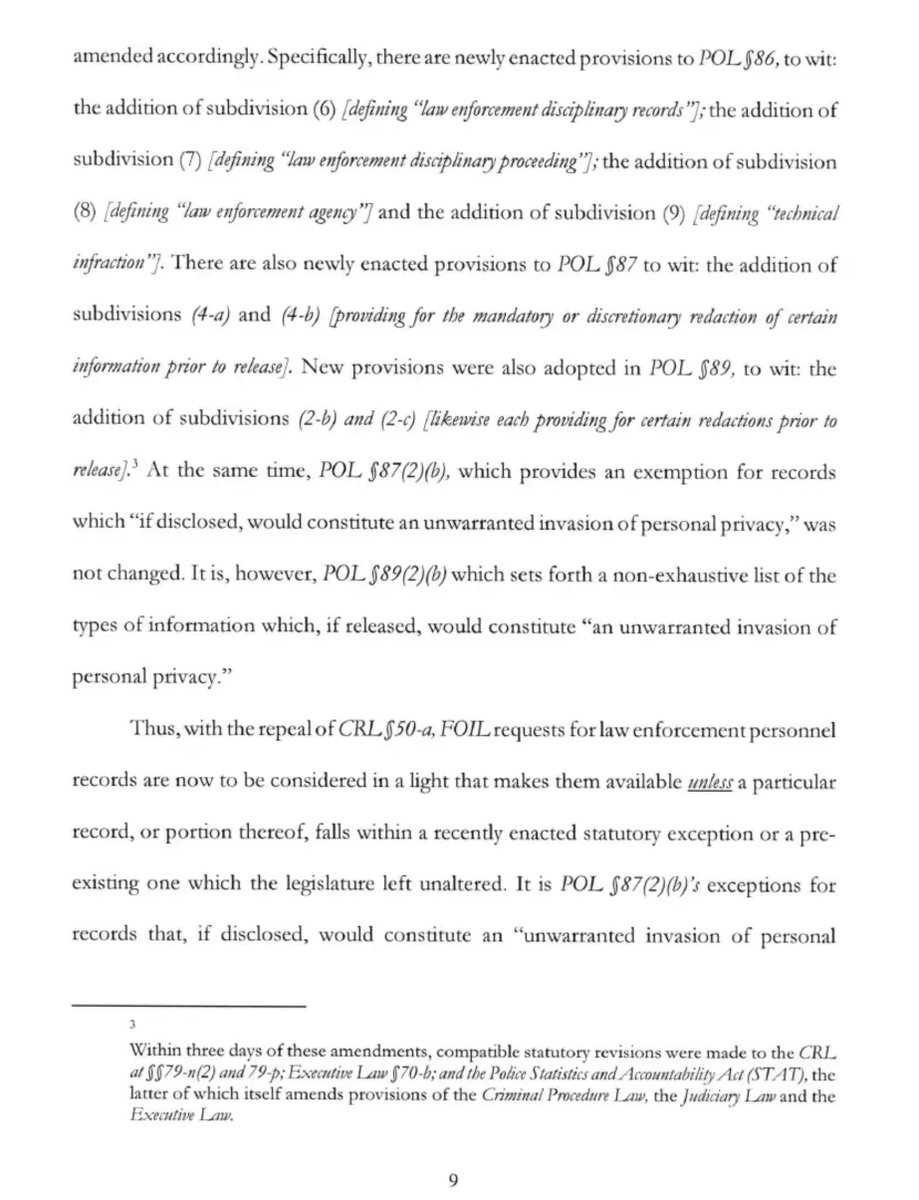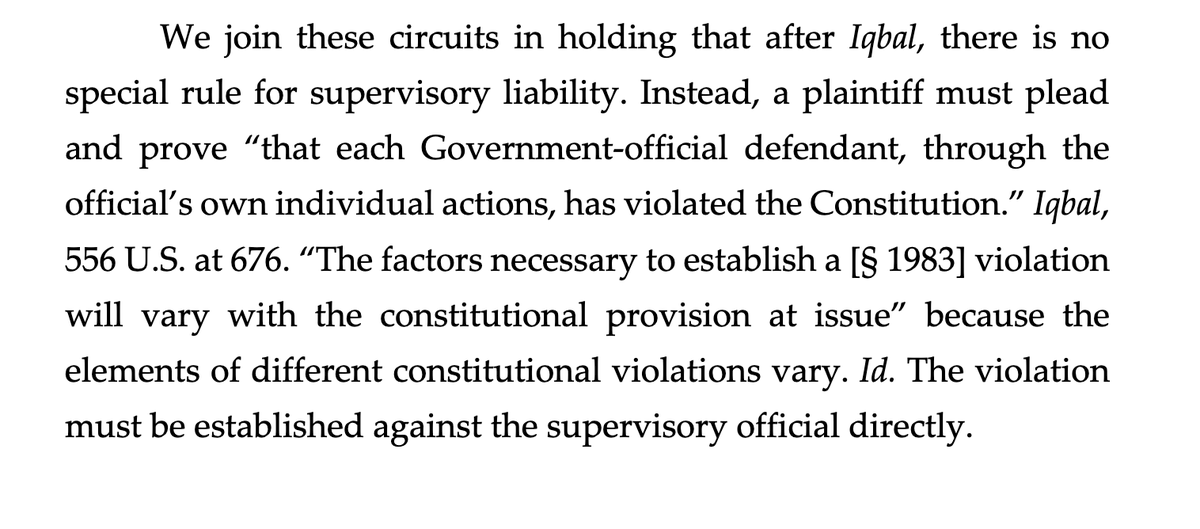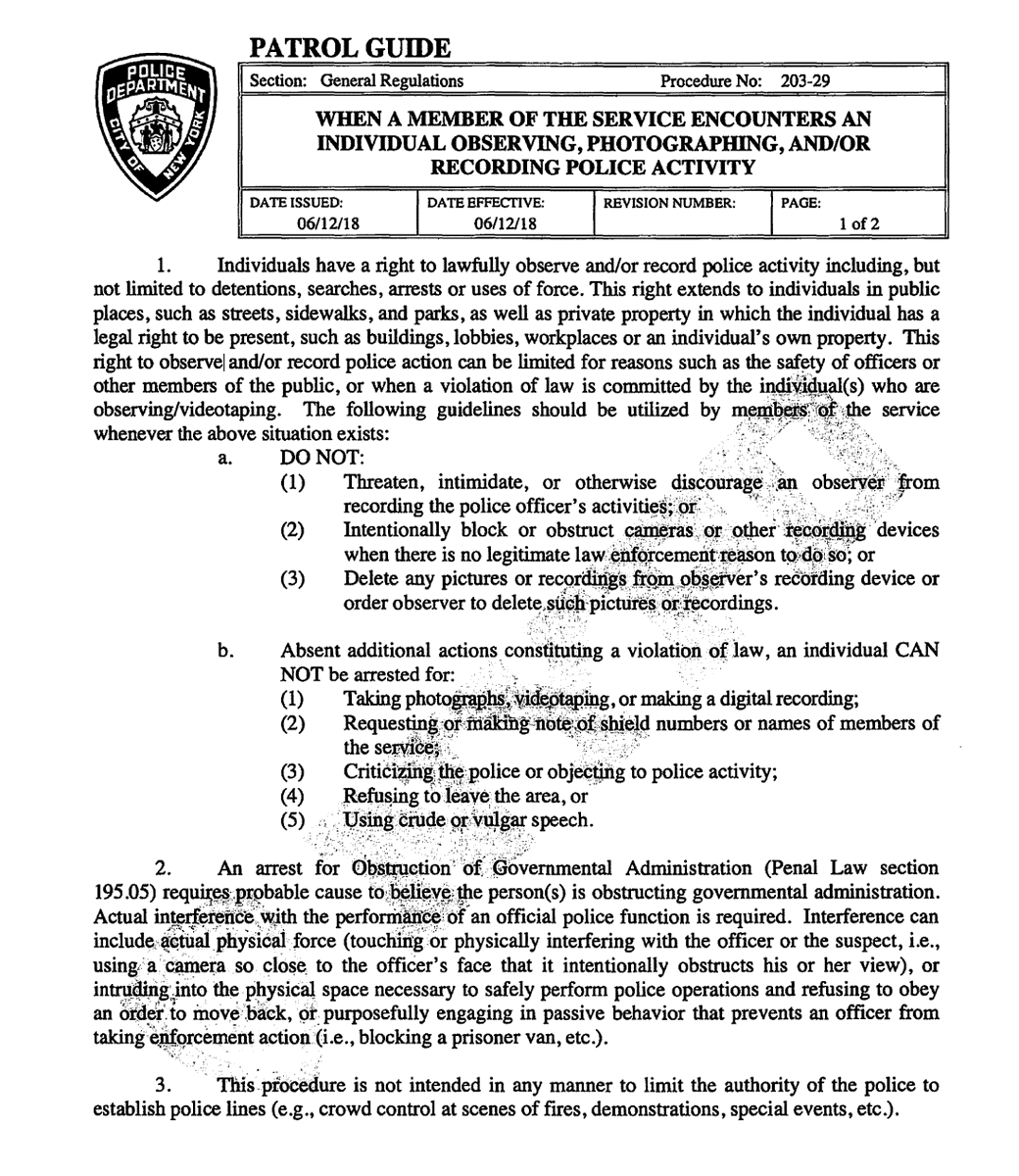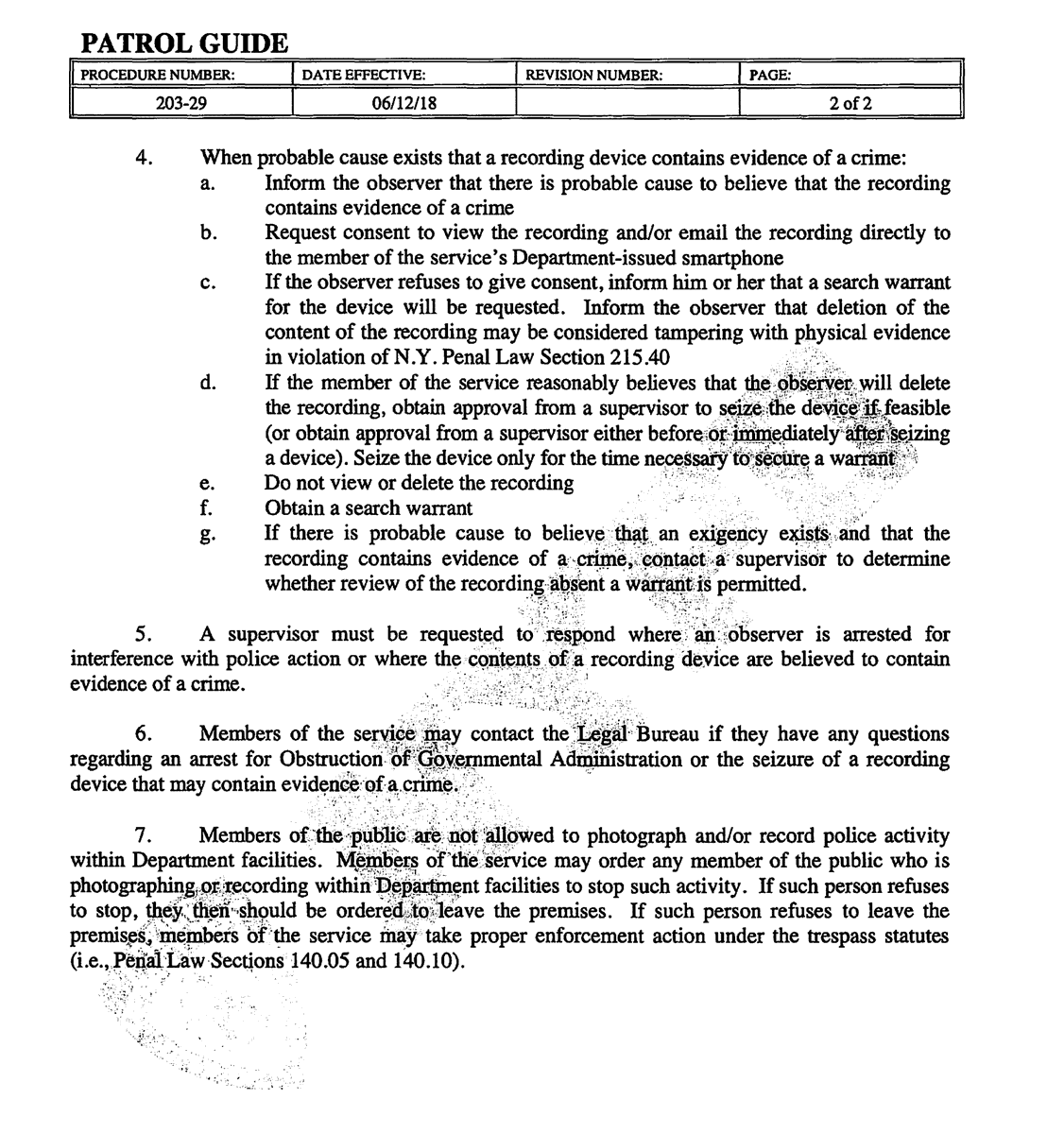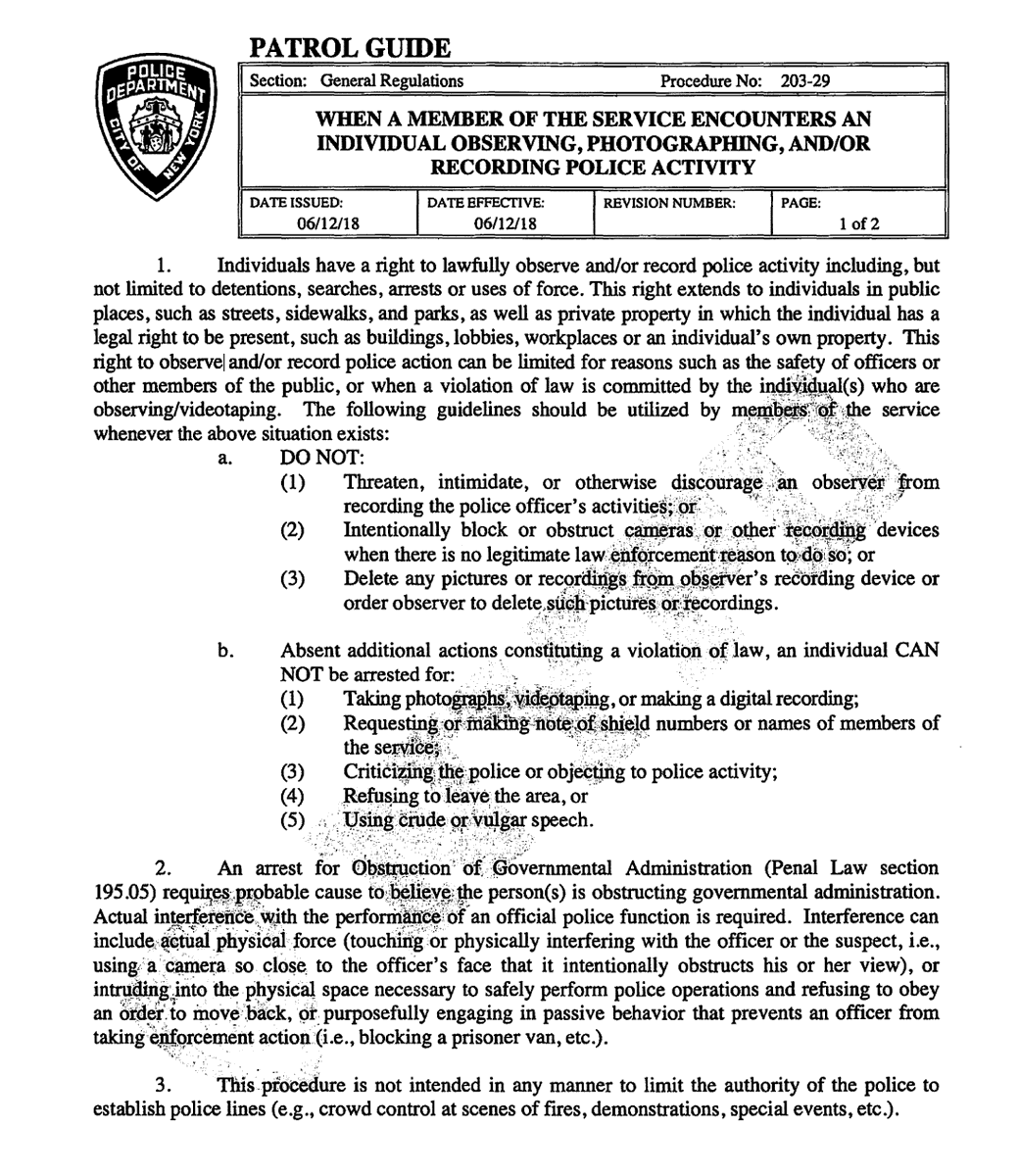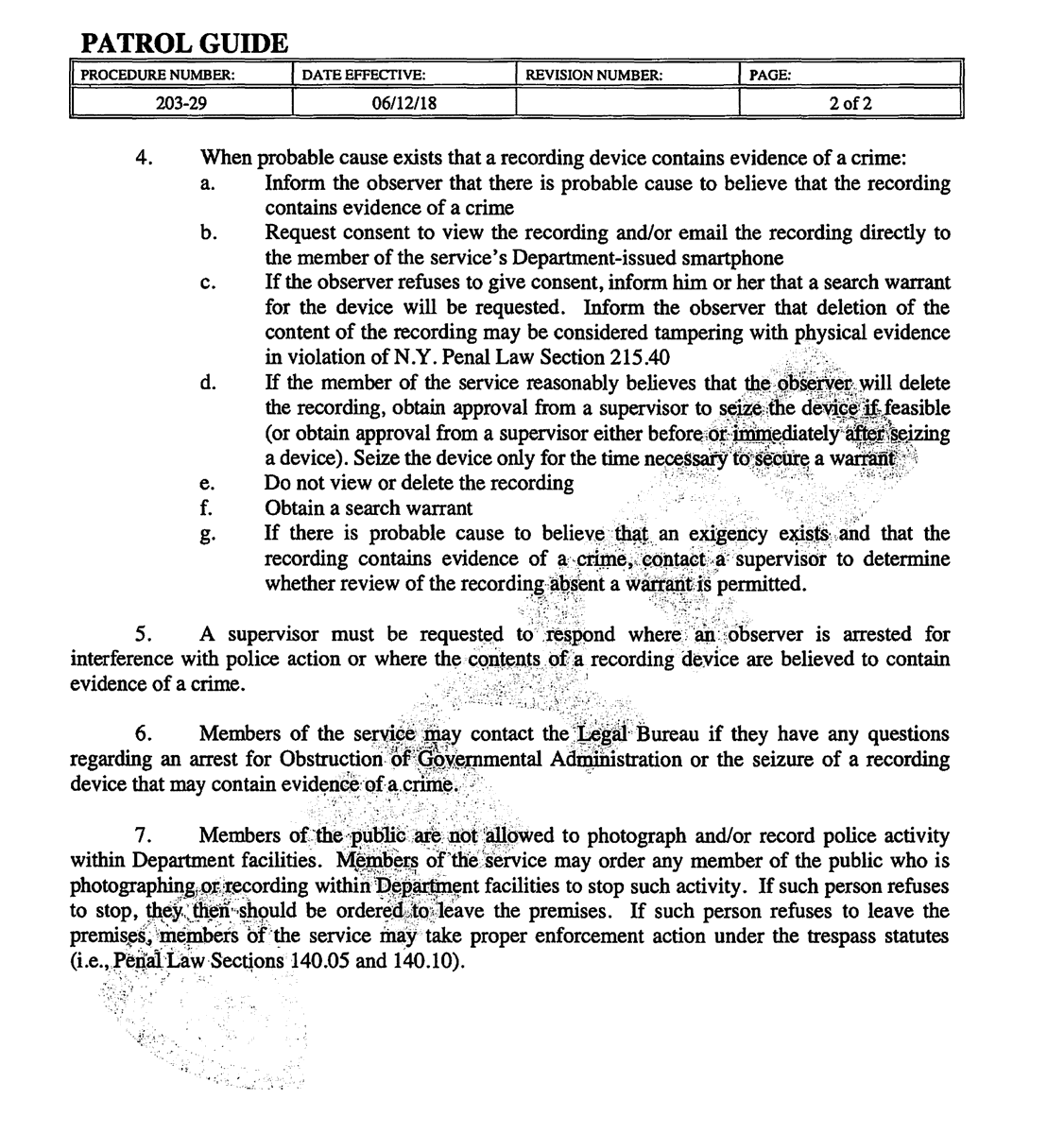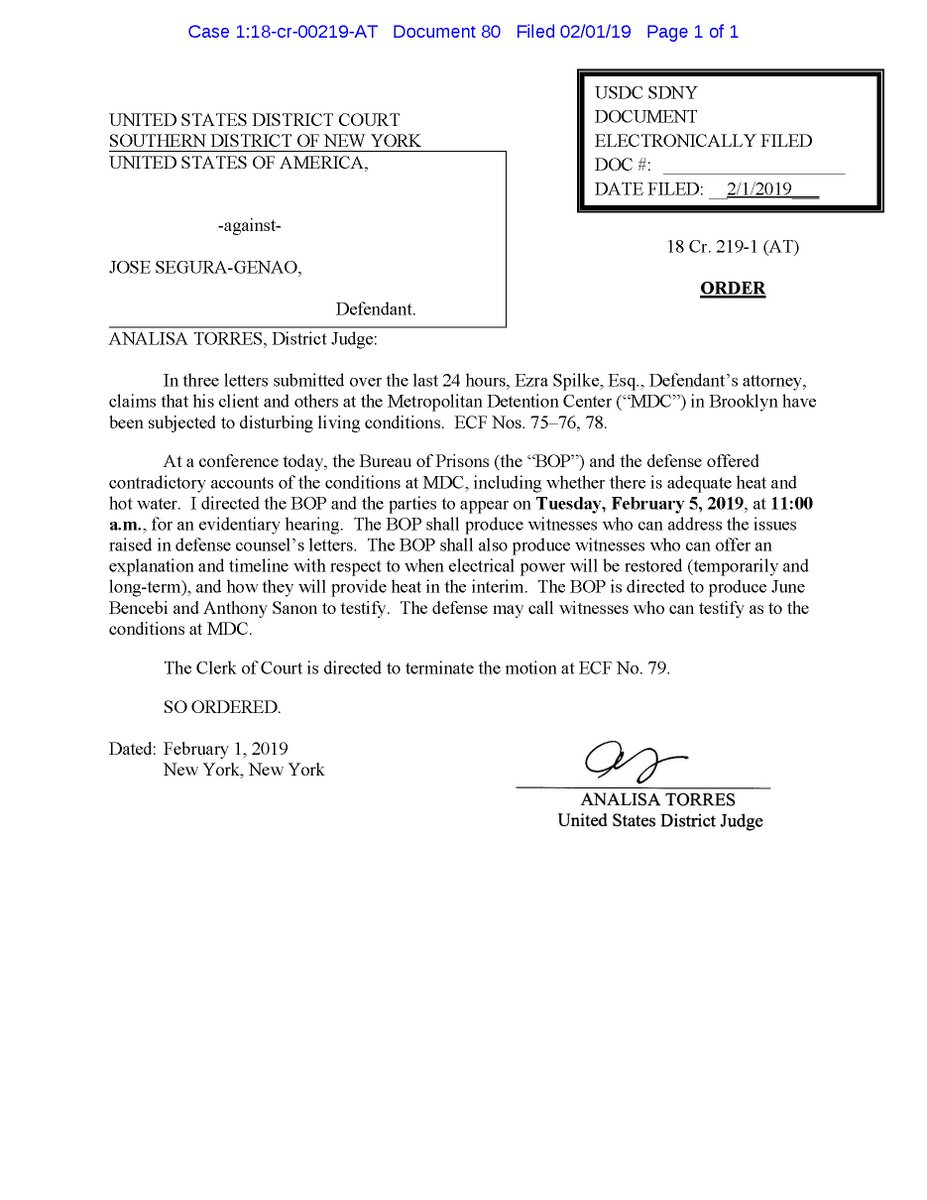
The NYC Corporation Counsel's report on the NYPD response to the #GeorgeFloyd protests - written by the lawyers who defend the NYPD over NYPD protest policing for a living with zero input from impacted communities or the civil rights bar - is, predictably, a complete whitewash
The thread linked below around the DOI's recent #GeorgeFloyd NYPD response-related report contains links to lengthy depositions and original documents about and including the NYPD's protest policing and crowd control-related training as of 2012:
https://twitter.com/gideonoliver/status/1339958440618299409?s=20
Some @macfathom processing of the report here:
https://twitter.com/macfathom/status/1344413478413606912?s=20
On the point below: The NYPD routinely made after-action reports around NYPD responses to events like the 2002 WEF and the 2004 RNC, then stopped doing so, or committing such frank assessments to writing, after we started getting them in civil discovery
https://twitter.com/macfathom/status/1344413504237957132?s=20
To the extent the report discusses deficiencies in training - the NYPD, Law Department, and Department of Investigation have not been transparent about what training is in place, how truly awful it is, and how little the training has changed over the years
It would be a mistake to take these City agencies at their word for what is and is not in the training.
It speaks volumes that they think they can get away with providing their own interested summaries rather than the relevant training materials.
That's not transparency.
It speaks volumes that they think they can get away with providing their own interested summaries rather than the relevant training materials.
That's not transparency.
Those agencies do not have the same ideas about either appropriate police response to protest or related training as activists, arrestees, other impacted communities, or members of the civil rights bar do; nor are they really interested in cosmetic, let alone radical, change
Through the tweet below you can find depositions and training documents reflecting the state of the NYPD's disorder control/First Amendment policing-related training 6 months into Occupy Wall Street. Want to bet that training hasn't changed much since?
https://twitter.com/gideonoliver/status/1340027494934716416
The training-related depositions and training materials linked above are all on the public record. I invite you to compare the summaries of the NYPD's current training in the Law Department's report with the contents of the prior versions of that training in the materials above
Rather than relying on what the NYPD, the Law Department, the Department of Investigation, or anyone else says about what the training is or is not, the City should make the substance of the current training public
• • •
Missing some Tweet in this thread? You can try to
force a refresh


